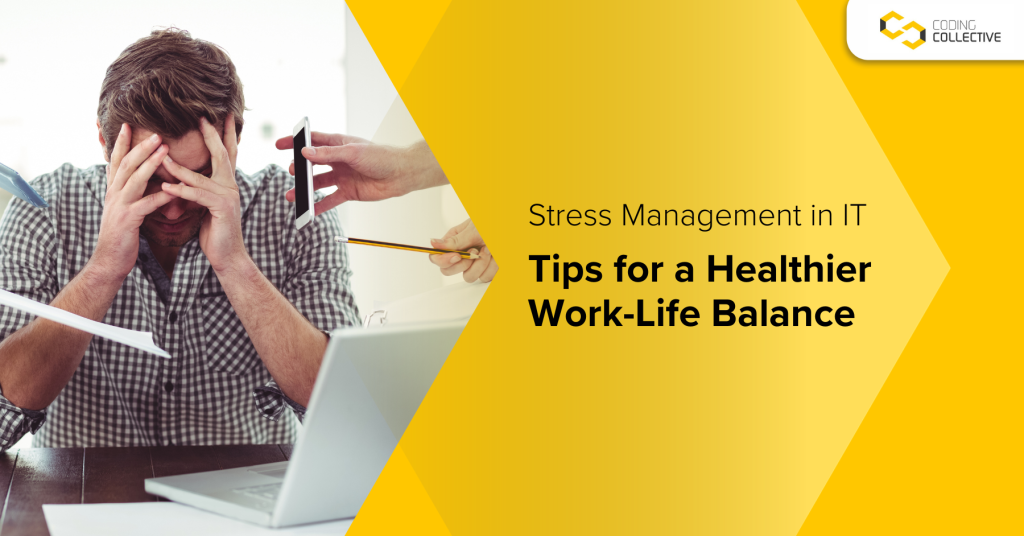
In the realm of Information Technology (IT), stress becomes an unwelcome companion for professionals continually striving to meet tight deadlines, navigate complex projects, and stay abreast of ever-evolving technologies. The industry’s demands can take a toll on mental health, and IT professionals often face unique stressors. Understanding the intricacies of these challenges is vital for fostering a healthier work-life balance. Acknowledging and addressing the mental health aspects is not just a luxury but a necessity.
This article aims to provide practical tips for navigating these challenges while prioritizing mental well-being. Here are some actionable suggestions:
- Prioritize and Organize
- Begin each day by outlining tasks and setting realistic priorities.
- Break down large projects into smaller, more manageable tasks.
- Utilize project management tools to stay organized and focused.
- Time Management
- Implement the Pomodoro Technique or similar time-management methods.
- Set specific time slots for tasks and take short breaks to refresh your mind.
- Avoid multitasking, as it can contribute to increased stress.
- Healthy Lifestyle Choices
- Prioritize regular exercise to reduce stress and improve overall well-being.
- Maintain a balanced diet and stay hydrated to support your physical and mental health.
- Ensure adequate sleep to promote cognitive function and resilience.
- Mindfulness and Relaxation Techniques
- Practice mindfulness or meditation to center your thoughts and reduce stress.
- Deep breathing exercises can be done discreetly at your desk to manage stress in real-time.
- Consider incorporating yoga or other relaxation techniques into your routine.
- Establish Boundaries
- Define clear boundaries between work and personal life.
- Avoid checking work emails or engaging in work-related activities during off-hours.
- Communicate your availability to colleagues to manage expectations.
- Continuous Learning and Skill Development
- Stay ahead in your field by engaging in continuous learning.
- Enhance your skills and knowledge, which can boost confidence and reduce workplace stress.
- Socialize and Connect
- Cultivate a supportive network of colleagues or fellow IT professionals.
- Share experiences and coping strategies with peers who understand the unique challenges of the IT industry.
- Seek Professional Support
- If stress becomes overwhelming, don’t hesitate to seek professional help.
- Employee Assistance Programs (EAPs) and counseling services can provide valuable support.
It’s essential to delve into the potential consequences of neglecting mental health in the IT sector. Burnout, decreased productivity, strained interpersonal relationships, and an overall diminished sense of job satisfaction are among the side effects that can manifest if mental health is overlooked. By understanding and addressing these risks, IT professionals can proactively manage their well-being, ensuring sustained success and fulfillment in their demanding roles.

